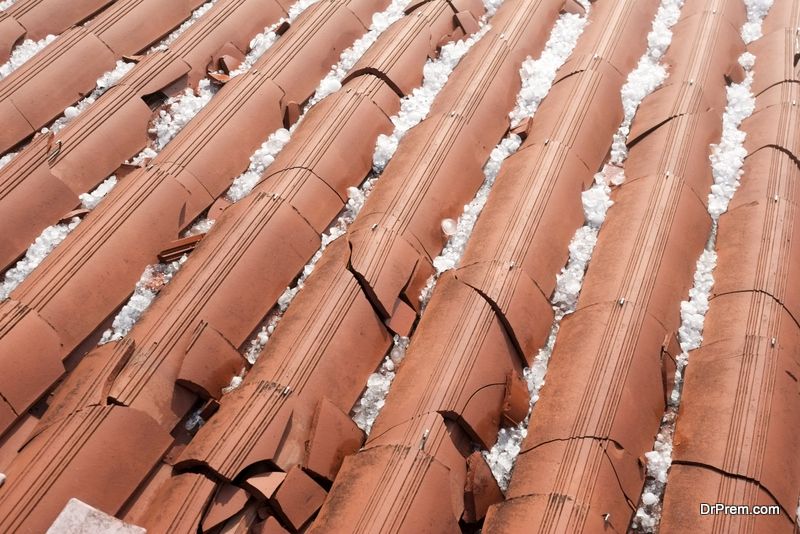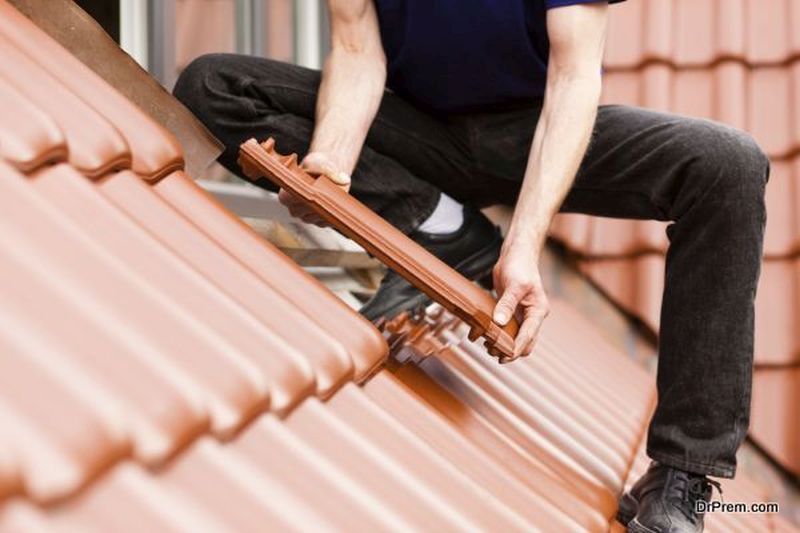Your roof is one of the most important parts of your property. If your roof is leaking, then it could damage the structure of your property, lead to problems with your electrical wiring, and potentially cause a lot of problems with damp and mold.
Your roof should last decades, especially if it is properly maintained. However, there are many reasons that you might want to update your roof. Perhaps tiles have started to come loose, perhaps you want to change to a different style of slate, or you have had to do some repairs to a flat roof and feel that it has reached the stage that entirely resurfacing it would be the best option. Often, people bring in a roofing contractor after a storm or some other incident that has damaged their property.
Avoiding Scammers

Roofing repairs are very expensive, and because of that, it is common for scammers to target people who are looking to get work done on their roof. These scammers prey on people who are not familiar with the work that goes into repairing a roof, and who do not know the market. They hope that the prospective client will be willing to pay a large sum of money, quickly, out of fear that if they don’t recruit someone right now, they could end up with their property suffering from a lot of damage because of their failure to act.
Ignore Contractors That Contact You Out of The Blue
Whether you need a new roof or not, be suspicious of those who contact you unsolicited. Even if you are in need of a new roof, it is not worth risking working with an unknown roofing contractor. If a roofer is reputable, then they will be more than able to stay in business with the customers that come to them. If a company is struggling to get customers to come to them, and is doing a huge amount of unsolicited marketing, then that should raise some red flags.
Be Particularly Wary of Roofers that Call After Extreme Weather

Roofers that contact people after a storm are often jokingly called ‘storm chasers’. Do not work with these contractors. Even if you do have a huge hole in your roof, and it is raining, you should not rush to make a decision about who to hire. If the roofer is asking you for money, then you politely but firmly tell them to leave. It is highly unlikely that you would see your money, or the contractor, again if you did hand over any money.
If you have suffered from roof damage in a storm, then you should call your insurance company first of all, and then find a contractor that is approved by your insurance company.
How to Choose a Roofing Company
Your insurance company will be able to give you a list of the roofing contractors in your area that they approve and that your policy will cover. You should call a couple of the companies on this list to find one that suits your needs, you can visit here. You can find reviews of these contractors online, and it is worth looking at listings on the Better Business Bureau website to find an accredited company that has good reviews. There are consumer-review websites that you can work with, such as Angie’s List, that are independent and that offer detailed information about the companies that they have reviewed.
Once you have put together a short list of potential contractors, the next step is to meet a few of them, and get to know them. Ask some questions and ask for clarification if you don’t understand the answers. A good, professional contractor will be happy to answer your questions and put you at ease. If you don’t feel like you can trust a contractor, then you should not work with them. Trust your intuition, even if you can’t quite explain why you don’t trust them.
Get Everything in Writing
Once you think you have found the perfect contractor, you should agree upon the scope of the project, the warranty, and major timescales. You should get all of this in writing. A good contractor will put together a clear and concise contract for you, and they will not ask for money until the contract has been signed by everyone involved. The payment schedule will be a part of the contract.
Usually, you will need to pay some money up-front, but you won’t need to pay the whole amount up front. Your contract will lay out payment milestones for the rest of the instalments. The up-front instalment goes partly towards buying any materials that people need, and partly to paying the workers. When specific milestones are reached (that could be a given date, or it could be a section of the roof being done, or a specific roof if you have a flat roof and a tiled roof to work on), the next payment will be due. Often, a final installment will be required when the work has been completed to your satisfaction.
Make Sure that You Understand Warranties and Insurance
 Each local authority will have its own rules relating to insurance and licenses for Roofing Contractors – Armor Services. If you aren’t sure what they are then you can call your local authority to find out more. In general, your contractors will need to have insurance for their employees and for the work site, as well as professional indemnity for the work that they are doing. This insurance will cover them if, say, a falling roof tile damaged your neighbor’s property or hurts someone. Be wary of a company that is reluctant to give information about their insurance policies.
Each local authority will have its own rules relating to insurance and licenses for Roofing Contractors – Armor Services. If you aren’t sure what they are then you can call your local authority to find out more. In general, your contractors will need to have insurance for their employees and for the work site, as well as professional indemnity for the work that they are doing. This insurance will cover them if, say, a falling roof tile damaged your neighbor’s property or hurts someone. Be wary of a company that is reluctant to give information about their insurance policies.
Your new roof should have a clearly stated warranty. This warranty is there to protect you from potentially expensive issues in the future and should cover any issues that occur relating to the roof and the workmanship that the contractor provided, even if they take some time to show up.
Article Submitted By Community Writer




